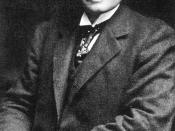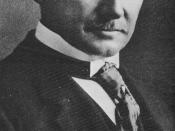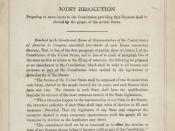The Progressive Philosophy: --While it is always dubious to generalize too much about social movements, there were some overarching principles that helped define Progressivism: o A Desire to Enlarge Democracy: Wary of the power of political machines and "special interests," Progressives sought to make government more egalitarian and open. Among key political reforms were: 17th amendment (1913), which allowed direct election of Senators; the 19th amendment (1920), which allowed women's suffrage; and the referendum and recall, which were described in your reading.
o Calls for a Regulatory, Active State: Part of what historian Steven Skowronek has termed "State Building," Progressives called for a more aggressive federal government to regulate business and more active local governments to provide social services, including sewage systems, schools, and other public works.
o Beliefs in Efficiency: Progressives also adhered to the calls of modern science and behaviorist Frederick Winslow Taylor, whose "Taylorism" stressed time management and efficiency use of space.
This philosophy, along with a commitment to university education, led to the belief that government could and would solve the ails of society.
o Adherence to "Christian Social Justice": At the same time, people accepted the idea of "environmental determinism," that one's environment determined their actions and beliefs. Thus, if policies could improve the working and living conditions of individuals, progress would ensue. This led to calls for shorter working hours (including Bunting v. Oregon (1917) which mandated the ten-hour day in Oregon).


